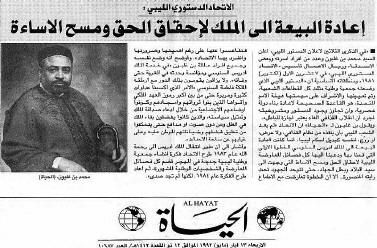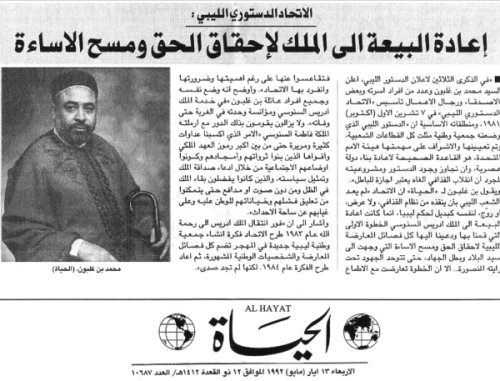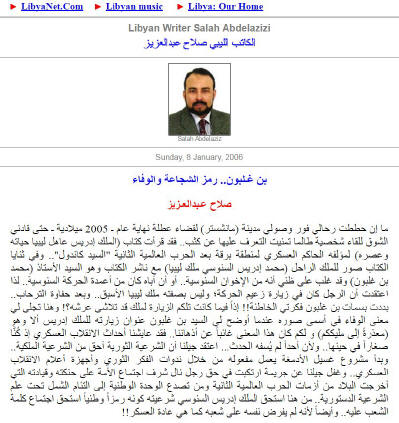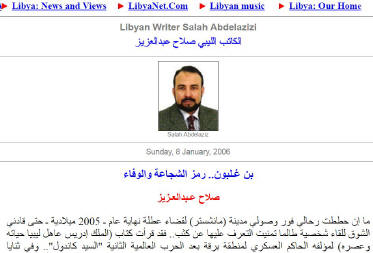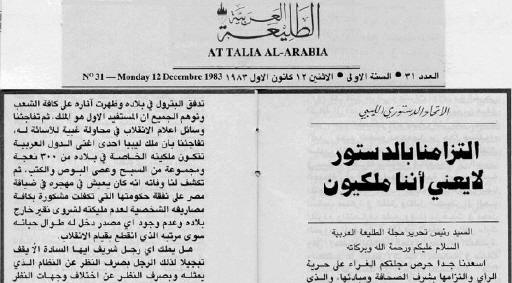|
||||||||||||||||||||||||||||||||||||||||||||||||||||||||||||||||||||||||||||||||||||||||||||||||
|
http://www.libyanconstitutionalunion.net &
AL-Hayat Arabic daily Newspaper (London) 13 May 1992 "Renewal of the Pledge of Allegiance to the King;to Correct a Wrong and Undo an Insult"
On 7th October 1981, the thirtieth anniversary of the Proclamation of Libya’s Constitution, Mohamed Ben Ghalbon, members of his family, friends and a group of businessmen, announced the establishment of the "Libyan Constitutional Union" (LCU). The principal aim of The LCU is that the Libyan Constitution, which had been put in place by a National Assembly that represented all public sectors under the supervision of the United Nations, should be the foundation to rebuild the modern state of Libya. The LCU argues that discounting the Constitution, just because Gaddafi and his fellow renegade junta repealed it is akin to endorsing the transgression. Ben Ghalbon told Al-Hayat newspaper “The LCU has never promised the Libyan people salvation from Gadaffi’s regime, nor has it ever offer itself as an alternative to it”. The LCU’s first step was to renew the pledge of allegiance to King Idris I, the father of independence and founder of modern Libya. “We invited all Libyan opposition groups and activists to do likewise, in order to undo a wrong and wipe out the insult inflicted upon His Majesty, and to move on, united under his tested and proven leadership. The initiative contradicted certain designs by others and was doomed to failure. Ben-Ghalbon added that he had “dedicated himself and all members of his family to serving the King in his lonely solitary exile till he passed away”. A task they “continue performing till this day with his widow, Her Majesty Queen Fatima”. This, declares Ben-Ghalbon, “gained us many bitter enemies from among the most senior and powerful figures of the monarchist regime, who accumulated enormous wealth and power through their links with His Majesty, and ruling in his name. They would rather have the King remain voiceless and in the shadows to cover their failure to stand up for him and for the country”. Ben Ghalbon concluded by saying that “immediately after the King’s demise in 1983, the LCU proposed establishing a new Tentative Libyan National Assembly from among all Libyan opposition groups in exile, as well as prominent figures and individuals. The idea was represented in 1984 but fell, yet again, on deaf ears.”
|
||||||||||||||||||||||||||||||||||||||||||||||||||||||||||||||||||||||||||||||||||||||||||||||||
|
Copyright
© 1999 LCU.
All rights reserved. |
||||||||||||||||||||||||||||||||||||||||||||||||||||||||||||||||||||||||||||||||||||||||||||||||


